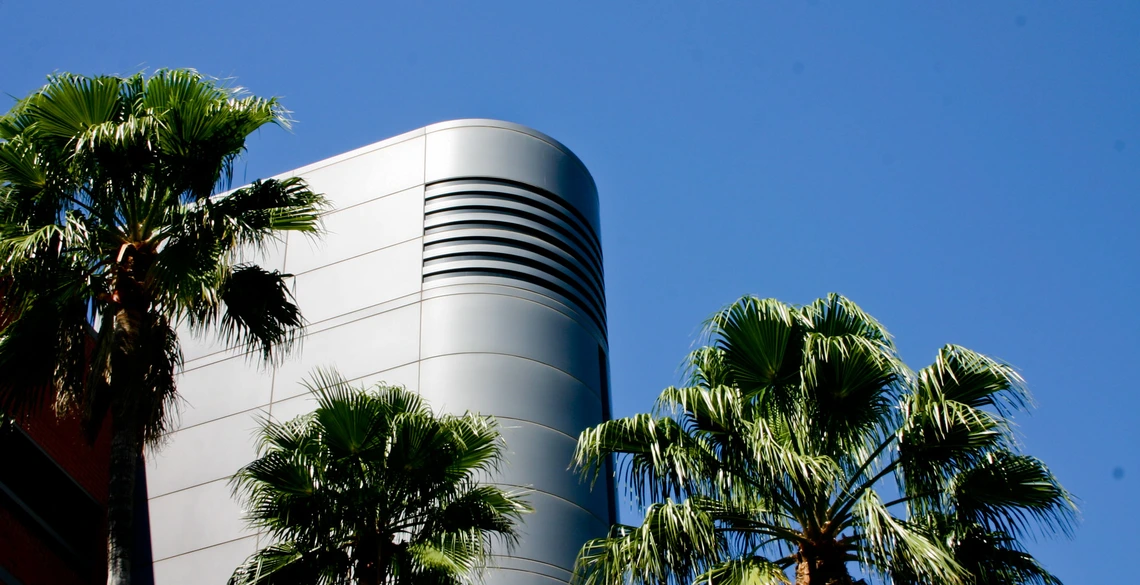UA to Host International Workshop on Antenna Technology
Workshop focuses on small antennas found in wireless devices, such as mobile phones and tablets, radio frequency ID tags, hearing aids, pacemakers, and more.

UA Department of Electrical and Computer Engineering building.
The 2012 IEEE International Workshop on Antenna Technology, or iWAT2012, will be held Mar. 5-7 at the Marriott University Park Hotel in Tucson, Ariz.
The workshop, which is sponsored by the Antennas and Propagation Society of the Institute of Electrical and Electronics Engineers, will be chaired by professors Hao Xin and Richard W. Ziolkowski of the electrical and computer engineering department.
The workshop will focus on small antennas. "All wireless devices use small antennas," Ziolkowski said. "All mobile devices, radio frequency ID tags, hearing aids, pacemakers -- it's a very long list."
The organizers say the workshop will continue the iWAT tradition of having a single session format augmented with interactive sessions, while providing plenty of time for interesting and rewarding professional discussions. The 2012 edition will continue the focus on the topic of small antennas, but will also emphasize unconventional applications.
Unconventional applications include what Ziolkowski describes as "in-on-out-of body antennas." On-body antennas include textile antennas, or antennas embedded in clothing. "Textile antennas will become really important for people in future assisted care facilities," Ziolkowski said. "To monitor vital signs such as heart rate and body temperature." These antennas can also help track the wearer's location, whether they are Alzheimer's patients or troops on a battlefield.
The applications for in-body antennas include a "Fantastic Voyage" through the gut. "You could swallow a pill and get movie of your gastro track as it travels through it," Ziolkowski said. On-body antennas could be used for keyless security: "You could have an RFID in your wristwatch to unlock the front door when you grab its handle."
"This is one of the top conferences in antenna-related research area and happens annually in North America, Europe and Asia," said Xin. Papers presented at the workshop will highlight the latest theoretical developments, numerical simulations, fabrication techniques and experimental methods in small antennas.

